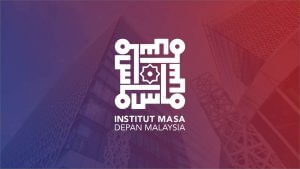Unless We Offer Better Salary And Review Existing Policy, Brain Drain Will Continue
By Adriana Asmaa’ Mohd Ezanee, Research Analyst, Institut Masa Depan Malaysia (MASA)
Malaysia is transitioning towards a knowledge-based economy where the production of goods and services is based primarily on knowledge-intensive activities that will advance technical and scientific innovation.
The Knowledge-Based Economy Master Plan (KEMP) launched in 2002, was to sustain a rapid rate of economic growth and enhance international competitiveness and for our country to move away from production-based economy.
Nevertheless, Malaysia will continue to rely largely on low-cost foreign labour.
Many industry players are pushing the government to simplify immigration procedures to bring in foreign workers as they are reluctant to wean off from low-cost business models as investment in technological advancement machines and operations necessitate a large sum of money.
The resistance to change this reflects the dearth of highly qualified positions which contribute towards underemployment among many Malaysians.
Despite the lack of accurate data, it can be assumed that the underemployment rate is larger than it should be given the recent growth of the gig economy.
According to the Department of Statistics Malaysia (DOSM), the number of unemployed graduates is trending up, reaching 33.9 per cent or 1.55 million in 2021, with graduates’ unemployment rate standing at 4.1 per cent.
Research shows that a surplus of unskilled labour will result in excessive labour emigration from the country’s educated population which will eventually impact state productivity and economic growth.
According to Bank Negara Malaysia (BNM), Malaysians are not being paid enough for the level of productivity we are producing, with many workers being underpaid.
It also reported that Malaysians had been underpaid for decades where Malaysian employees were paid the least for the same level of production compared to their regional peers in Singapore and South Korea.
The issue of brain drain has been a prevailing one, afflicting almost all industries. In essence, it is an external migration of the educated part of the country’s population.
Acclaimed infectious disease expert, Professor Adeeba Kamarulzaman highlighted that Universiti Malaya loses at least 30 of its medical graduates to Singapore each year, and that it costs the country almost RM1 million per student to train.
In 2011, the government set up TalentCorp to help stem brain drain and attract Malaysians back home via its returning experts programme (REP).
But, it only managed to bring back home only 3,600 Malaysians since its establishment in 2011.
It is time for the government and the employers to reconsider offering highly skilled individuals enticing incentives in order for our talents to remain in this country such as through financial rewards or attractive career advancement opportunities.
They should also recognise highly-skilled Malaysian workers in vital sectors that can harness a knowledge-based economy.
Strengthening the social safety net and providing support will make working in this country more attractive, especially for young individuals and families.
Expectedly, young employees, in particular, place emphasis and high priority in getting supportive and positive work environment that encourages rewards innovations, creativity and hard work.
Malaysia must make significant investments in top-notch training and educational initiatives to guarantee that it has a workforce that is qualified to fulfil the demands of modern economy.
The Human Resource Development Fund (HRDF) needs to accelerate its efforts in offering high-quality training and upskilling programmes, publicising its range of projects extensively and making itself accessible to all working Malaysians.
Leading technology agencies like NanoMalaysia and the Malaysia Digital Economy Corporation (MDEC) must help businesses and organisations across all industries to increase their readiness, knowledge and adoption of technology.
The promotion of research and
development initiatives through tax exemption, for instance, will definitely lure multinationals and investors as this move contributes towards cost reduction.
For companies, tackling underemployment requires them to take utmost care of their workers. Their employees should be given job based on their interests, calibre and academic merits. The designation and post assigned to a worker plays an important role in the performance and efficiency of work.
Companies should acknowledge local talent or highfliers who can drive innovation to unlock workers’ reserve of creative energy. Such energy must be unlocked, deployed and channelled until a virtuous circle is created in which the workers and their companies can flourish together.
Therefore, close cooperation between the government and employers and a review of the existing policies are vital to bring back and retain young talents to push Malaysia towards becoming a high-income nation.


